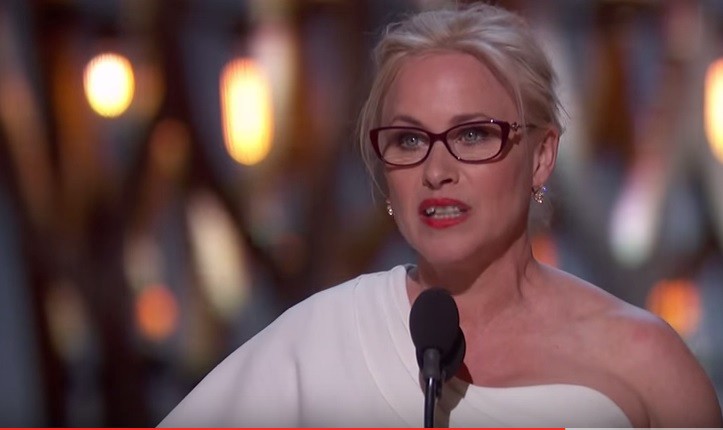A groundbreaking new law is predicted to shake up Hollywood by — gasp! — paying women what they deserve.
This week, California Governor Jerry Brown signed the state’s Fair Pay Act. The law isn’t the first legal measure to address the pay gap between men and women. Since 1949, California state law has prohibited wage discrimination on the basis of gender. The old law, however, applied only to “equal” work, which the courts have been interpreting as the exact same job. To take the Sony hack as an example, Christian Bale, Bradley Cooper and Jeremy Renner didn’t have the precisely the same work as their under-paid female costars Jennifer Lawrence and Amy Adams. But the revised law will apply to “similar” work.
Hollywood has played an instrumental role in pushing this conversation — and legislation — forward. The Fair Pay Act’s author, State Senator Hannah-Beth Jackson, credited Patricia Arquette’s Oscar acceptance speech for giving the measure momentum. “To every woman who gave birth, to every taxpayer and citizen of this nation, we have fought for everybody else’s equal rights. It’s our time to have wage equality once and for all and equal rights for women in the United States of America,” exclaimed the “Boyhood” actress at the podium during the 87th Academy Awards.
Many actresses have followed suit by speaking out against their unfair paychecks. “Your salary is a way to quantify what you’re worth. If men are being paid a lot more for doing the same thing, it feels shitty,” Gwyneth Paltrow recently commented. Just yesterday, “Suffragette” star and awards-circuit staple Meryl Streep said that she receives less pay than her male costars. (Streep has also made a public mission of getting the Equal Rights Amendment (ERA) back on Congress’s agenda. This fall, she sent every House rep and senator a letter asking for the legislative body to make gender parity a part of the U.S. Constitution.)
With the passage of the bill, “[S]tudios and producers will now have to ensure that the art of compensation becomes more of a science — using box office performance, awards haul, physical demands and other empirical measures to justify different pay rates,” according to The Los Angeles Times. Gone are the days of seemingly arbitrary but actually sexist methods to come up with salaries. (In what world is Jennifer Lawrence worth less than Jeremy Renner? What exactly went into crunching those numbers?)
It’s not all smooth sailing from here on out, though. Entertainment industry litigator Miles Feldman told The Times, “Because of the unique nature of the performance being provided,” studios may find ways to weasel their way out of accountability. “There are a lot of ways for employers in the entertainment industry to still maneuver,” he warned.
The law does include exceptions allowing for a “wage differential” due to seniority, merit, education, training, experience and performance. So the pay of onscreen talent will still be somewhat subjective.
Still, there is cause for celebration. “I think you’ll see studios and their counsel take it more seriously than they have in the past,” said attorney Seth Neulight. “There is now another tool in the toolbox for female actors to speak out.”
Read more about California’s Fair Pay Act and its potential impact on Hollywood at The Los Angeles Times.
[via The Los Angeles Times]






